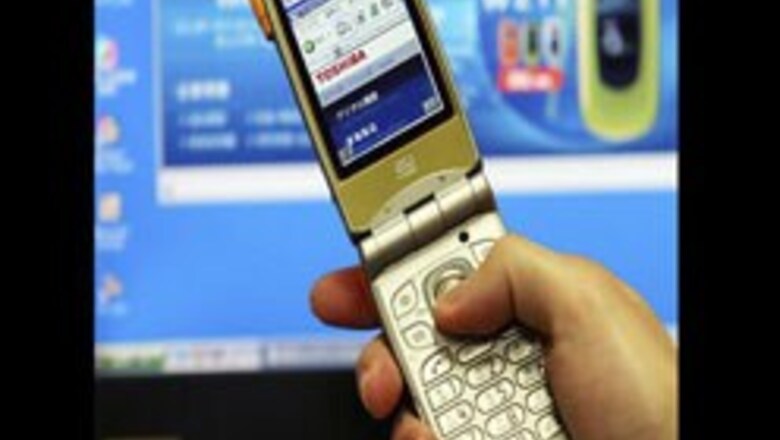
views
New Delhi: Imagine a mobile phone that reads your mind! Or a device that can translate a speech instantly or a 3-D Internet in which you can walk the aisles of supermarkets, bookstores and DVD shops!
It may sound a distance future, but according to IBM Research, they are the real-life innovations that are going to be a norm of modern living in the next five years.
Giving a sneak peek at the technology innovations that are going to shape the future and change our lives over the next five years, IBM Research has released its "IBM Next Five in Five" — which is a list of innovations that have the potential to change the way people work, live and play over the next five years.
IBM says the list is based on market and societal trends expected to transform our lives, as well as emerging technologies from IBM labs around the world that could make these innovations possible.
"Our researchers are focused on the application of technologies in ways that matter to people, business and society," Dr Daniel Dias, director of IBM's India Research Laboratory, claims. "Open collaborative research and real-world innovations are going to shape the future," he says.
Apart from the above three, the five most potential technology innovations listed by IBM Research also include remote access to healthcare and use of nanotechnology for water filtration.
Mobile phone that reads mind:
Advanced 'presence' technology will give mobile phones and PDAs the ability to automatically learn about their users' whereabouts and preferences as they commute, work and travel, IBM Research claims. 'Presence' technology — used in instant messaging — already makes it possible to locate and identify a user as soon as the user connects to the network.
In five years, all sorts of mobile devices will have the ability to continually learn about and adapt to your preferences and needs. Your phone will know when you're in a class or in a meeting and divert automatically to voice mail. Your favourite pizza joint will know when you're on your way home after a late night and ping you with a special-price, take-home meal just for you.
Remote access to healthcare:
Hardware and software advances in the field of remote-control healthcare will be a major source of consumer and enterprise innovation by 2012. Millions of people with chronic health problems such as diabetes, heart, kidney or circulatory problems will be able to have their conditions automatically monitored as they go about their daily lives.
Device makers and healthcare professionals will take a proactive approach to ongoing, remote-monitoring of patients, delivered through sensors in the home, worn on the person or in devices and packaging. These advances will also allow patients to better monitor their own health and help clinicians provide the ongoing preventive care regardless of a person's location.
PAGE_BREAK
Real-time speech translator:
IBM speech innovations are already allowing media companies to monitor Chinese and Arabic news broadcasts over the web in English and travellers are using PDAs to translate menus in Japanese and doctors to communicate with patients in Spanish. Real-time translation technologies and services will soon be embedded into mobile phones, handheld devices and cars. These services will pervade every part of business and society, eliminating the language barrier in the global economy and social interaction.
3-D Internet:
IBM predicts that popular online immersive destinations like Second Life and the World of Warcraft will soon evolve into 3-D Internet. When this happens, you will walk the aisles of supermarkets, bookstores and DVD shops, where you'll encounter experts you'd rarely find in your local store. The 3-D Internet will enable new kinds of education, remote medicine and consumer experiences, transforming how we interact with our friends, family, doctors, teachers, favorite stores, and more.
Nanotechnology use for water filtration:
Nanotechnology has the ability to manipulate individual atoms and molecules to form tiny new structures. In the coming years, nanotechnology will likely be used for water filtration. This could advance ecology and conservation, helping to address the growing worldwide shortage of potable water supplies.



















Comments
0 comment